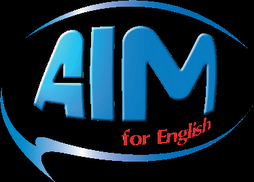Wednesday, September 19, 2007
New Teachers at Aim
kursus bahasa inggris di Jakarta
Tuesday, September 18, 2007
Problems with learning English commonly experienced by Indonesian students.
First, the Indonesian education system (or at least the system which today's teenage and adult language learners passed through) tends to produce students with preconceived notions of ways to be taught. Often this means passive learners expecting to absorb information from the teacher, who is the center of a class, an authority figure, and someone who must not be questioned. Language learning is most effective in an environment where active students feel free to participate, get involved and ask questions; an environment where students know that making mistakes is the best way to learn, and where making a mistake does not result in loss of face.
While this article is not intended to criticise the education system in Indonesia, it does seem that the content of a great deal of Indonesian schools' English language curriculum is based on the teaching of theoretical knowledge as opposed to developing functional, communicative language skills. Often this means that the Indonesian ESL student is able to produce complex grammatic forms, but has little awareness of the actual meaning of the language they are producing. Upon prompting, A student would be able to write a correct sentence using, for instance, the present perfect continuous tense, but when questioned as to the real usage and the meaning of the grammatical form, many high school graduates are stumped.
Then there are the problems resulting from L1 (first language) interference. In terms of pronunciation, many Indonesians have trouble pronouncing consonant clusters (3 or more consonants together is a word), as these clusters do not occur in Bahasa Indonesia. The rolling of the letter 'r' is another common issue, but not one which causes any kind of strain for the listener. In general, pronunciation is not a huge problem for Indonesians, especially when compared to learners from Asian countries with tonal languages such as China and Vietnam.
Bahasa Indonesia does not have tenses as such, and a simplified method of talking about different points in time is often attempted in English (for example, 'yesterday I go'). The concept of tenses, especially the more complex perfect tenses, is often difficult to grasp for Indonesian students. Similarly, Indonesian English students often have trouble creating sentences with correct word order, again caused by the word order patterns in their first language (for example, 'the tree big'). Finally, most Indonesian words are spelled phonetically, creating problems with learning the inconsistent, almost random way in which many English words are spelled.
While the few problems mentioned above do create barriers for Indonesians, they are relatively easy to overcome. Good teachers with an awareness of these difficulties can adjust the way they teach and the materials they use to suit Indonesians. Courses can be created which have Indonesian students in mind, rather than generic courses designed for European learners. Again generalising, it can also be said that, given the right environment and encouragement, Indonesians soon become active, communicative students. Indonesians are hard working, dedicated, enthusiastic and, in general, a pleasure to teach.
One school which recognises the importance of tailoring language education to suit Indonesians is 'Aim for English' www.aimjakarta.com, a pioneering Jakarta-based language centre. Their incredible facilities, custom-designed courses and experienced teachers all combine to provide the very best language education for Indonesians.
In Indonesian: kursus bahasa Inggris di Jakarta
Belajar bahasa Inggris untuk bisnis, general, conversation, studi akademik, IELTS preparation and much more!
Aim for English offers a comprehensive range of business English courses designed to meet your exact requirements.
Whatever your industry, whatever your department, whatever you level, Aim can custom-design an effective language program to train you and your staff more professionally than ever before.
Classes can be held at our hi-tech facilities in Manggarai, which features a fully operational business training room, designed to replicate a hi-tech meeting room environment.
Alternatively, for only a little extra cost, we can deliver the training courses at your office. This offers convenience for busy employees.
For more information, click the link below
Effective business English training courses in Jakarta
Kursus Bahasa Inggris untuk Bisnis di Jakarta
Tuesday, September 11, 2007
Jakarta's pioneering, hi-tech language school now brings quality education to you.
Make your teacher sit in traffic rather than you!
Wednesday, September 5, 2007
Jakarta's most forward-thinking language school is now the most cost-effective way to learn English in Jakarta. The best teachers, and courses taught in the most most complete educational facility in Indonesia's capital.
For more, click here: kursus bahasa inggris di DKI Jakarta
